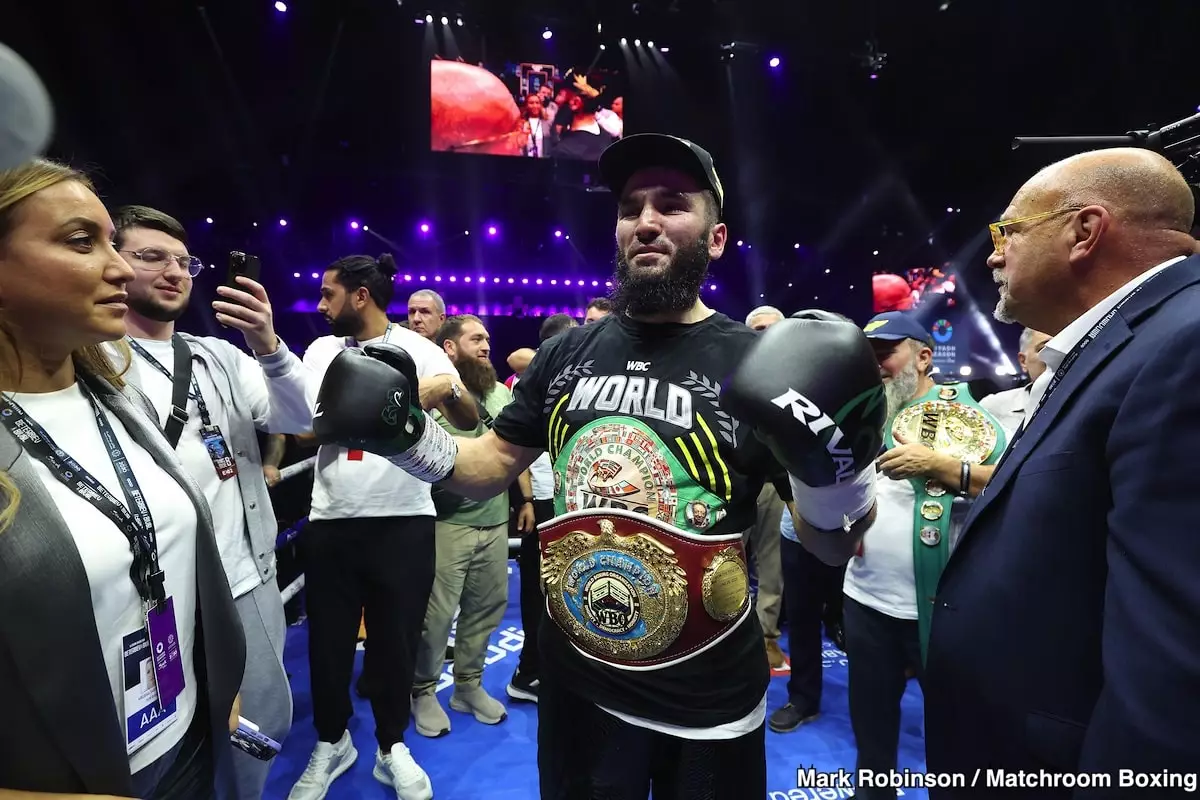In the world of professional boxing, controversy often seems to be as prominent as the fighters themselves. The recent unification bout between Artur Beterbiev and Dmitry Bivol highlights this unfortunate reality, as the aftermath of the fight spiraled into discussions about judging standards, fairness, and the very integrity of the sport. While both competitors exhibited their exceptional skills, the attention quickly shifted from the action in the ring to the dubious scoring by the judges, leaving many in the boxing community questioning a system that has repeatedly let athletes down.
On a night that should have celebrated the extraordinary talents of two elite light-heavyweights, fans found themselves grappling with the outcome that accompanied their bout. Bivol, with a reputation for his boxing acumen, showcased a performance that many believed was worthy of victory, especially against an opponent like Beterbiev—known for his punching power and an unblemished KO record. As the rounds unfolded, observers noted how Bivol adeptly managed the fight, demonstrating not just skill but also remarkable resilience in the face of a formidable opponent.
However, the judges offered a different narrative. With one scoring the match a draw at 114-114 and the remaining two favoring Beterbiev, the boxing world was left shocked. This discordance between public perception and the scored outcome unearths a deeper, systemic issue within the sport. Beterbiev remains undefeated, now standing at 21-0 with 20 KOs, while Bivol’s record falters at 23-1. Yet, the focus has pivoted from these statistics to the glaring question: how could such disparate viewpoints coexist regarding the fight’s result?
The Impact of Scoring Discrepancies
In a sport as rigorous and demanding as boxing, scoring should reflect the gallery of skills on display. Instead, the inconsistency and, at times, apparent ineptitude of judges threaten the credibility of the sport itself. Following the Beterbiev-Bivol encounter, reactions flooded in, echoing sentiments of disappointment and betrayal. Bivol’s palpable effort and tactical mastery seemed overshadowed by the judges’ inability—or unwillingness—to accurately reflect what occurred over those twelve rounds.
Compounding this issue is the sense that these controversies are not isolated events. They occur remarkably frequently, sparking discussions about whether boxing is navigating through a crisis of trust. In a sport where discipline, perseverance, and sacrifice are the hallmarks of success, the thought that an athlete’s dreams can be derailed by flawed judging is disconcerting. For Bivol, who displayed commendable bravery and skill, the emotional toll of such a decision could overshadow his career achievements.
In the immediate aftermath of the fight, many voices—including those from Bivol’s camp and industry insiders—have called for reform in the judging process. As the sport’s integrity hangs in the balance, both enthusiasts and professionals alike are urging that immediate steps be taken to ensure that such controversies do not sully the sport further. A transparent and standardized scoring system, alongside a system to investigate the judges’ scoring practices, could serve as a beginning step towards restoring faith in the process.
Amidst the turmoil, Bivol himself presented a level of sportsmanship that is commendable. Rather than igniting the situation further, he chose to acknowledge the judges’ authority in their roles, albeit with a tinge of resignation about the decisions made. Supporters, including promoter Eddie Hearn, passionately articulated their discontent, indicating that the outcry will continue as Bivol’s camp pushes for a rematch. While this rematch is essential to settle the score, larger questions about the future of boxing’s scoring practices linger.
As the dust settles from the unification fight, the memory of the judging disparity lingers, undoubtedly influencing opinions and sentiments within the boxing community. Boxers dedicate their lives to excelling within the ring, yet relatively obscure decisions have the power to disrupt their futures and narratives. For Bivol, he may find redemption in a rematch, but whether that will alter public perception of his abilities remains to be seen.
For now, the boxing community stands at a crossroads. Continuing to overlook inconsistencies in judging could undermine the sport’s reputation and ultimately alienate fans. Reflecting on the fallout from Beterbiev vs. Bivol, a call for essential change resonates louder than ever—one that prioritizes fairness and celebrates the true essence of competition in boxing.

